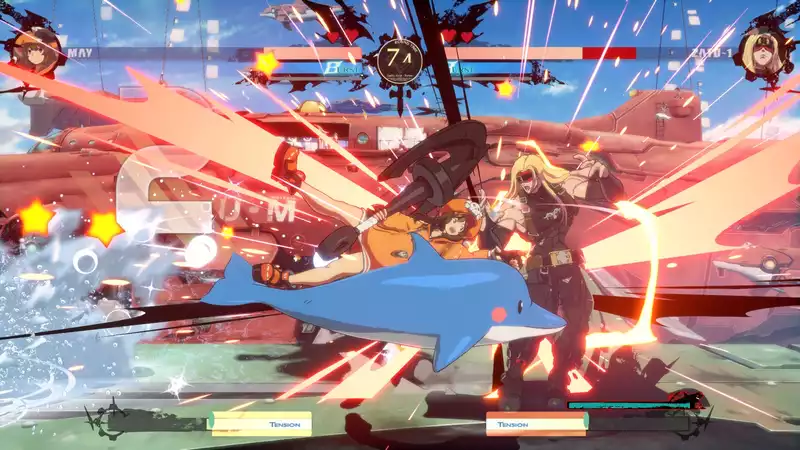To help players understand the intricate, globe-spanning storyline, "Guilty Gear Strive" comes with an extensive in-game glossary. Late last month, however, it was discovered that one entry had been altered to remove references to less fanciful elements of Chinese history.
Patch 1.03, delivered shortly after launch, was hardly remarkable. However, a ResetEra user (via Eurogamer) found that the update rewrote two sentences in the lore section on "International Affairs after the Crusades" and removed references to countries including Taiwan, Tibet, and Uyghur.
The first sentence that was changed omitted references to Korea, Taiwan, and Singapore and originally read: "Countries with high population densities and a tendency to import food, such as Korea, Taiwan, and Singapore, could not solve their national problems through energy availability alone.
The second was similarly similar, with references to specific regional names removed from the following: "China has further expanded its borders to encompass less populated but more natural resource-rich regions such as Uyghur, Tibet, Inner Mongolia, Mongolia, and Siberia. [As of this writing, neither Namco Bandai nor Arc System Works have explained this change (Eurogamer notes that it has not received a response from either, and I have since sought comment). However, there are strong indications, direct or otherwise, that these changes were made to ensure that the games would be accepted in China, which has strict regulations on game publishing.
Other countries, such as Australia and China itself, have kept their names on their copies. However, given accusations of genocide against the Uyghurs, reports of mass labor camps in Tibet, and rising tensions between China and Taiwan, Namco Bandai may have played it safe.
Chinese-developed games such as "Genshin Impact" have already filtered out references to regions such as Hong Kong and Taiwan. However, pressure to access China's huge gaming market has also put pressure on international developers, with Blizzard banning Hearthstone pros for protest comments and Taiwanese indie horror "Devotion" being locked out of Steam for two years
.

Comments